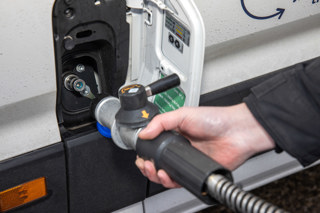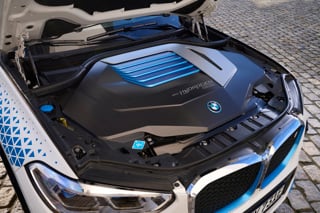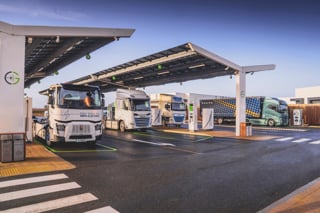The future of transport is looking increasingly fuel cell driven, according to sustainable energy consultancy E4tech.
In its fifth annual overview of the fuel cell sector, it found that fuel cells are key to transitioning away from carbon fuels.
Last year saw the groundwork for fuel cells and hydrogen application continue to be laid. Fuel cell costs dropped, manufacturing capacity expanded, the supply chain firmed up, and Governments and companies set out targets for true mass production and adoption.
The most significant advancements in fuel cell application over the last year has been for transport with fuel cells now powering vehicles and vessels.
The heavy duty truck sector now sees fuel cell technology as its best long-term fuel option and driven by favourable taxation along with emission concerns, fleets using mid-sized lorries are going into service in Switzerland and China.
FedEX and UPS are trialling fuel-cell powered delivery vans and DHL Express will be using 500 fuel cell range-extension vans next year. In Japan, Toyota is developing fuel cell trucks for the 7-11 convenience store chain, with deployment later this year.
Hyundai has announced an agreement to supply 1,000 18-tonne fuel cell trucks to Switzerland in partnership with H2 energy. These HGVs will be used by a consortium of companies including Co-op, a Swiss supermarket, committed to replacing its fleet with zero-emission vehicles and supporting hydrogen. The vehicle range is 400km.
A favourable taxation environment has also encouraged the adoption of hydrogen powered lorry fleets in Switzerland.
Nikola Motor plans to be the ‘Tesla’ of heavy-duty fuel cell vehicles with a reported $11bn US in pre-orders for its semi-trucks and a $380m in pre-orders for its Nikola Tre, its newly unveiled European model.
The firm plans to offer a subscription model that includes fuel and maintenance rather than selling the trucks.
Large corporations are starting to invest in fuel cells and hydrogen as part of their strategy with some linking their interests in infrastructure, logistics, supply chain, energy and other forms of transport beyond shipping.
Professor David Hart, report lead author at E4tech, said: “There’s a real tangible interest in deployment, scale-up and sustainable business propositions. Governments are indicating that fuel cells are a genuine contender in driving economic and industrial growth, beyond having clear environmental benefits.
“The next two years are key and we fully expect to see increased investment, innovation, sector growth and adoption.”




















Login to comment
Comments
No comments have been made yet.